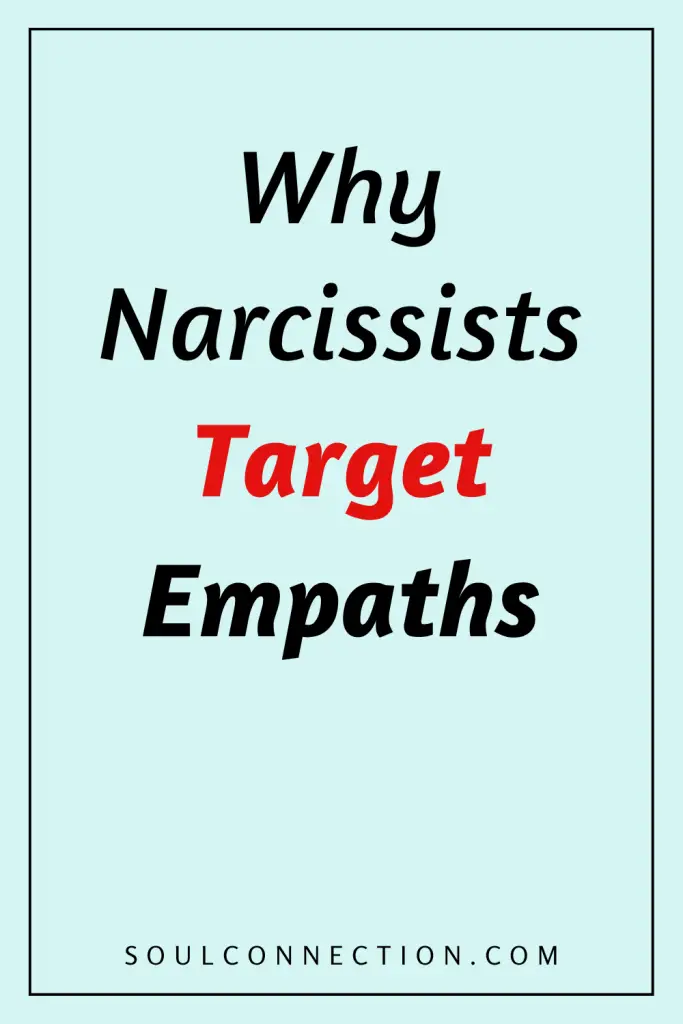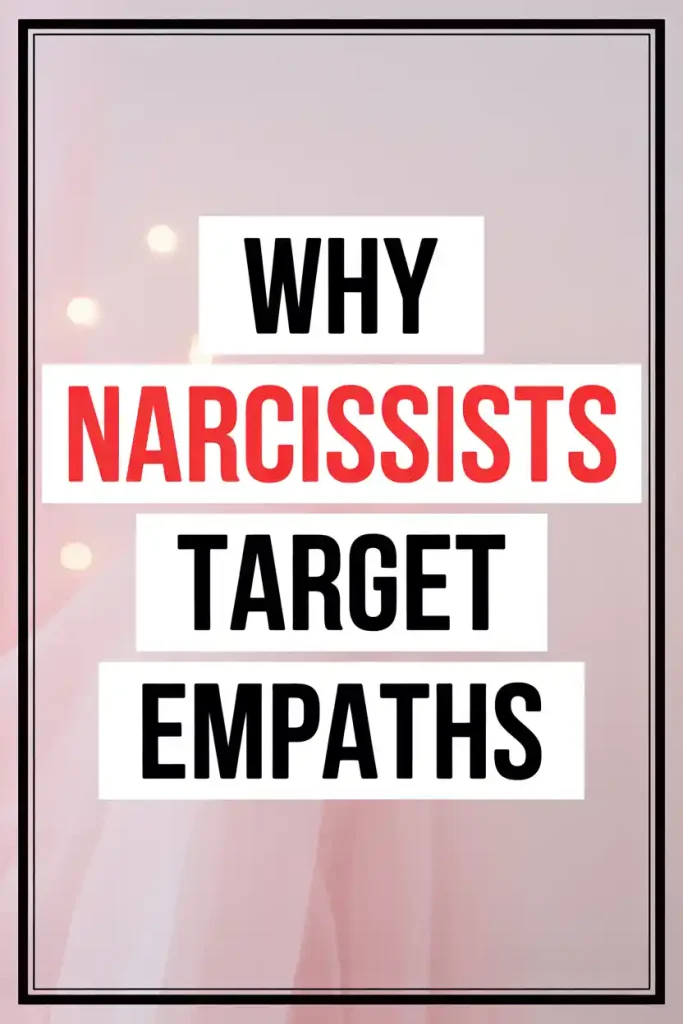Oil and water. Cats and baths. Narcissists and empaths. Some things just don’t mix—until they do, and then the result is often a spectacular mess.
If you’ve ever wondered why narcissists seem to have a sixth sense for sniffing out the kindest, most compassionate souls in the room, you’re not imagining things.
Let’s jump right into the heart of this relationship paradox. Grab a mug of something comforting (no judgment if it’s wine), and get ready to understand the attraction that’s as magnetic as it is disastrous.
What Makes an Empath So Alluring to a Narcissist
Empaths have a superpower: the ability to sense, feel, and absorb the emotions of others like a sponge (if that sponge also came with a PhD in intuition).
This quality turns them into emotional detectives—always tuned in, always ready to help, always caring a little too much.
Now, imagine you’re a narcissist. You thrive on being the center of attention. Your ego could use its own postcode. Who looks more appealing than someone who will put your needs first, every single time?
Empaths offer an endless well of understanding and patience. Narcissists? They’re looking to draw water from that well until it’s bone-dry.
The Chemistry of Need: Supply Meets Demand
Narcissists crave validation like kids crave lollies. Positive attention, admiration, and unwavering focus are their fuel. Enter the empath, who is basically a full-service petrol station for egos.
Empaths provide what narcissists desperately seek: adoration and an audience. The empath’s giving nature feeds the narcissist’s hunger for praise. It’s a supply chain with no global shortage—at least at the beginning.
Wounds That Find Each Other
Here’s a hard truth: narcissists and empaths are often drawn together because their wounds fit like puzzle pieces.
Empaths are used to caretaking—sometimes because of childhood experiences where they had to read the room to stay safe or loved.
Narcissists, on the other hand, have learned to demand attention and to manipulate as a means of coping with their own wounds or insecurities.
It’s not fate. It’s pattern recognition. Each one is acting out a script—one needs to give, the other needs to take.
The Thrill of the Chase
For narcissists, the empath presents a delicious challenge. All that emotional depth? All that strength masked by softness? It feels like a prize to win, a fortress to breach.
Empaths often don’t make it easy (at first), because healthy boundaries are part of their DNA. But narcissists are persistent.
Where others might back off, they lean in, laying on the charm with the subtlety of a marching band.
The more the empath resists, the more the narcissist turns up the charisma. We’re talking grand gestures, love bombing, and the kind of attention that feels intoxicating—until it doesn’t.
Why The Empath Stays
Ever seen someone try to rescue a goldfish from a puddle, determined to save it even as it slips through their hands? That’s an empath in a relationship with a narcissist.
Empaths believe in the power of love to heal. They see the cracks beneath the narcissist’s polished surface and think, “I can fix that.” Spoiler: They can’t.
The narcissist capitalizes on this hope, stringing the empath along with crumbs of affection. Every apology, every rare moment of vulnerability, hooks the empath a little deeper.
It’s a cycle as familiar as your nan’s old biscuit tin.
Emotional Manipulation: The Narcissist’s Secret Weapon
Gaslighting, guilt-tripping, rewriting history—narcissists have a whole Swiss Army knife of manipulation tactics.
Empaths, bless their cotton socks, are especially vulnerable because they’re hardwired to question themselves before questioning someone else.
A narcissist can make an empath doubt their own memory, their feelings, even their reality. The empath’s instinct to empathize makes them ripe for this kind of emotional trickery.
If you’re the one always apologizing, always wondering if you’re “too sensitive,” take a step back. The issue isn’t your feelings; it’s who’s twisting them.
The Flipside: What the Empath Gets Out of It
Now and then, people ask: Why would an empath stick around? It’s not just martyrdom or naivety.
Being needed feels good—at least, at first. Empaths get a sense of purpose from helping others, especially those who seem “broken” or misunderstood.
When a narcissist showers them with praise (in the beginning), it amplifies this sense of validation.
Trouble begins when the relationship turns transactional. The empath gives; the narcissist takes. The scales tip, and suddenly the setup that felt special starts to feel suffocating.
Escaping the Trap: Setting Boundaries Without Guilt
Empaths are notorious for having leaky boundaries. Narcissists—well, they’re excellent at finding those leaks and blowing them wide open.
The secret weapon for empaths? Boundaries like brick walls. No matter how much the narcissist protests, pouts, or proclaims undying love, stick to your limits.
If “no” feels like a four-letter word, practice it in the mirror. Try “not today,” “I’m not comfortable with that,” or the classic, “I’ll get back to you.”
Watch as your self-respect grows, and notice who bristles when you finally start protecting your own needs.
Why This Dynamic Is So Hard to Break
Habit is a sticky beast. When a narcissist and empath pair up, patterns develop fast. The narcissist learns just which buttons to push; the empath becomes adept at smoothing things over.
Both roles can get comfortable—even when they’re miserable. Fear of being alone, guilt over “giving up,” or hope for change keeps the cycle churning.
Breaking free means rewriting the script. Empaths need to accept that not everyone is theirs to rescue, and narcissists (if they ever choose to change) have to look elsewhere for healing.
Signs You’re Caught in the Crossfire
Not sure whether you’re tangled up with a narcissist? A few red flags might sound familiar:
- Your needs always come second.
- You find yourself apologizing constantly.
- You tiptoe around their moods.
- Small criticisms escalate into major blowouts.
- You feel like you’re losing your sense of self.
If this list has you nodding along, it’s time for a reality check—and maybe a support group.
How to Keep Your Empathy and Protect Your Heart
Empathy isn’t the problem here; it’s a gift. But a gift given to the wrong hands can turn into a curse.
Ground yourself in your own reality. Stay connected to friends and family who remind you who you are. Write down your feelings and experiences; your journal won’t try to gaslight you, promise.
Above all, remind yourself that loving someone doesn’t mean losing yourself.
When to Seek Help
Not every relationship can—or should—be mended by love alone. When the emotional scales keep tipping in someone else’s favour, it might be time to get an outside perspective.
Therapists, counsellors, or even a wise mate with no filter can offer the clarity you need. If you’re constantly anxious, exhausted, or doubting your own sanity, you deserve more than a pep talk. You deserve support.
Finding Your Way Forward
Empaths, keep your hearts open, but guard the gates. Narcissists aren’t evil masterminds, but they are experts at spotting soft spots and turning them into entry points.
Healthy relationships require two people who can give and receive with equal grace. If one partner’s cup is always overflowing while the other’s runs dry, it’s not love—it’s a transaction.
Give yourself permission to step away from anyone who makes you feel small, confused, or unworthy. The right people will celebrate your empathy, not exploit it.
If you’re an empath, your compassion is your superpower. Use it wisely, and save a little for yourself.


